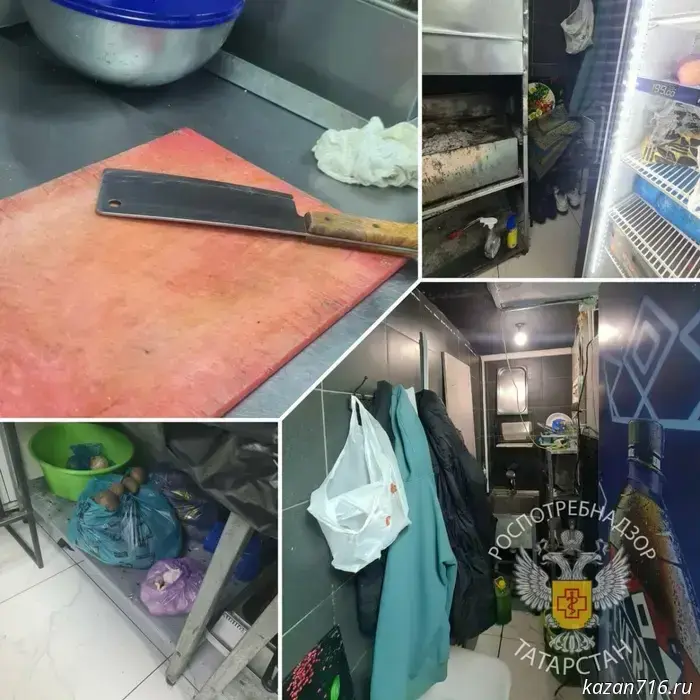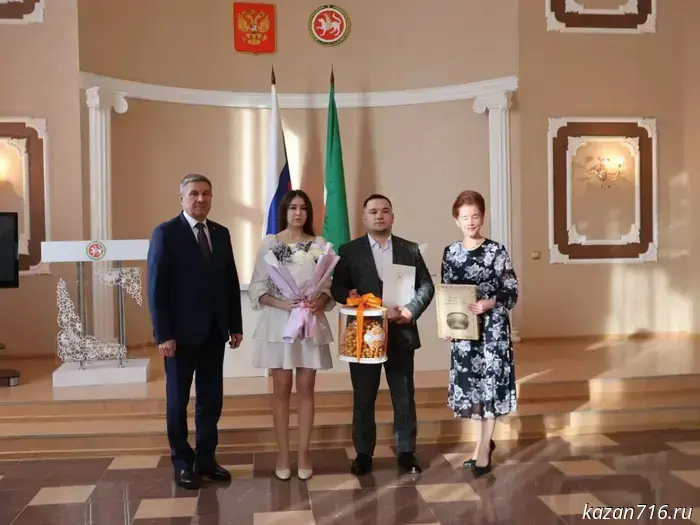Lenara Muzafarova: "If you told scammers four digits from an SMS — run to the nearest MFC"
A chat-bot in MAX will help make appointments at Tatarstan’s MFCs
Since the beginning of 2025 Tatarstan’s MFCs have provided 5.5 million services
Multifunctional centers in Tatarstan remain one of the most in-demand places where residents receive government services. MFC offices are open six days a week and receive up to 15,000 visitors daily. Since the beginning of 2025, residents of the republic have been provided with 5.5 million services, said the director of the State Budgetary Institution MFC in the Republic of Tatarstan, Lenara Muzafarova, at a briefing in the Cabinet of Ministers of the Republic of Tatarstan. She named the top five most requested services. In first place, as usual, were issues related to cadastral registration; second was information on tax arrears. Third was confirmation or modification of data in ESIA (the Unified Identification and Authentication System).
“ESIA has been among the leaders for the past five years; you know this is related to scammers and hacks. Every day a huge number of people are targeted by fraudsters who hack personal accounts on the State Services portal. Because of this we change passwords, people come to us. Also, having ESIA you can obtain a great number of services,” the director said.
In fourth place were issues related to migration registration of foreign citizens. These services entered the list of popular services at the MFCs of the Republic of Tatarstan. “Migrants and their registration ‘pushed’ information from the EGRN (Unified State Register of Real Estate) and entered the top five,” the head of the center explained.
In fifth place was the issuance of SNILS, which is also linked to migrants, Muzafarova added. In total, residents of the republic can receive about 300 different services at MFCs.
The workload on MFCs increased due to changes in migration legislation
The surge in demand for services for migrants is a complex of new legislative requirements related to increased control over the legalization of foreigners and mandatory biometric identification when activating SIM cards. As a result, foreign citizens are required to go to MFCs to confirm their account on the “Gosuslugi” portal and to obtain SNILS and INN.
“The influx at the end of May–June was colossal. No matter how much we tried to ease the situation and strengthen [staff], nothing worked. More and more people kept coming,” Muzafarova explained.
Other changes in federal legislation also added additional strain on the system. Since February 2025, foreign citizens who are in Russia without legal grounds are subject to inclusion in the Register of Controlled Persons (RCL). Under the new rules, MFC employees are obliged to check each applicant against this register. If a person is included in the RCL, they are refused services. Such a check takes additional time and complicates the service process.
“When a migrant comes to us, before providing the service we ‘run’ them through this register. This program is not only for Tatarstan. There are migrants who move from one region to another. Therefore the check is across all subjects of the Russian Federation. And this multiplies the waiting time for applicants in line,” Muzafarova added.
All this increased waiting times in queues in January–May. Thus, in Kazan the average wait was about 16 minutes, and at peak times it reached three hours. According to the head, there were cases when people could not get a ticket for several days to, for example, register their child’s residence.
“A huge number of complaints poured in. I had to urgently resolve the issue. I understood that streams had to be separated,” said the head of the MFC.
A special department for working with migrants, opened with Minnikhanov’s support, helped relieve MFC offices in Kazan
The workload at offices in large cities increased many times over. For example, in Naberezhnye Chelny the problem was solved in contact with large employers, in particular KAMAZ. They organized buses with migrants at times when MFC offices were least busy. In Kazan this was not possible, because many foreigners came to work for themselves, as private workers.
To relieve Kazan’s MFC offices, a specialized department serving foreigners was opened in the Privolzhsky District at 74 Avangardnaya Street. Here visitors can receive the full set of necessary services: register and be put on migration records, obtain SNILS and INN, and confirm their account on “Gosuslugi.”
According to the MFC director, the new format has proven highly effective – migrants, learning about the new office by word of mouth, poured in.
“Currently this center accounts for up to 74% of all foreigner requests in Kazan. The department has more than 20 service windows and receives about 500 people daily,” Muzafarova noted.
Average waiting time has been reduced to four minutes, and queues at other offices have significantly decreased.
Muzafarova thanked the Rais of Tatarstan, Rustam Minnikhanov, for his support and additional funding for the renovation of the building where this migrant service department was opened.
According to the director of the MFC in Tatarstan, the new office literally has a “family-like” atmosphere. Migrants help each other, including with communicating in Russian.
“There were cases when people set a self-ban, and the next day they come and say: ‘No, I still want a loan’
The main topic of the briefing was work with migrants, but Muzafarova also spoke about new ways to protect against fraudsters. This year Tatarstan’s MFCs began providing a number of new services aimed at increasing citizens’ digital security. Now several bans can be set at the centers: on real estate transactions without the owner’s personal participation, on taking out loans, and on purchasing new SIM cards.
A ban on real estate transactions is entered into the Unified State Register and prevents the transfer of ownership without the owner’s personal participation. The service is free and available to all citizens.
A self-imposed ban on loans helps protect against fraudsters who take out loans in someone else’s name. Since March the service can be set on the “Gosuslugi” portal, and since August — directly in MFC offices. In 2025 more than 21,000 people have set self-bans on loans, and about 5,000 have removed them.
“There were cases when people set a self-ban, and the next day they come and say: ‘No, I still want a loan, and banks refuse.’ There were cases when they were simply checking whether the system works or not,” the director said.
Muzafarova reminded that the self-ban applies only to consumer loans and credits, not to mortgages, car loans, or state-supported education loans. It can be full or partial, is valid indefinitely, and does not affect the credit rating. It can be removed by applying to an MFC.
It is also possible to set a self-ban on concluding mobile contracts. Citizens, including foreigners, can submit an application to prevent operators from issuing new SIM cards in their name. The maximum number of SIM cards per person is 10. This measure is aimed at combating phone and online fraud.
Appointments at MFC via chat-bot in the MAX messenger
Tatarstan’s MFCs are actively implementing digital services. In 2025 a convenient appointment tool appeared in the republic — a chat-bot in the social network MAX. Tatarstan was among the twenty regions where the service was implemented first.
“It (the chat-bot) has a clear interface and good request processing speed. The bot will also provide sought-after information about the readiness of documents. The service can be used directly from a smartphone,” Muzafarova said.
The chat-bot allows you to make an appointment, cancel an appointment, check the status of an application, working hours, and the readiness of documents.
Muzafarova urged residents of Tatarstan to be vigilant: scammers have already created a similar chat-bot in Telegram. She believes such a fake is likely not a single case.
“Tatarstan’s MFCs do not have a chat-bot in Telegram. Appointments are made only via chat-bots in the social network VKontakte and in the MAX messenger,” the director of the MFC in the Republic of Tatarstan explained.
“There are three cases when calls come from the MFC”
Phone calls from people claiming to be MFC or State Services employees are not uncommon. Scammers report “pension recalculations” or “unclaimed documents” and ask you to read out codes from SMS.
Muzafarova reminded that MFC specialists never request codes or passwords, and calls from the MFC are made only from the official number (843) 222-06-20 and are purely informational.
There are three cases when the MFC calls: documents are ready, the date or time of an appointment has changed, or a submitted application needs to be corrected. MFC specialists never request personal data or confirmation codes by phone.
If your personal account on the “Gosuslugi” portal has been hacked, it is recommended to go in person to an MFC office — specialists will help restore access.
“If you understood or didn’t understand, but you dictated those four digits to someone. What do you do? Take your passport and run to the nearest MFC office,” Muzafarova recommended.
According to her, there have already been cases when MFC employees were able to timely block the previous password for the State Services portal while fraudsters were attempting to take out a loan in the victim’s name.
“We have very professional specialists who react quickly,” concluded the director.
Photo: © “Shähri Chally”
Другие Новости Казани (Казань716)
 Another shawarma shop in Kazan was closed for sanitary violations.
In Kazan, the operation of the food service establishment "Shawarma on Coals" on Khusain Mavlyutov Street has been suspended. 11.11.2025. Tatar-inform news agency. Republic of Tatarstan. Kazan.
1.2 million rubles from Tatarstan's budget will be allocated for digital equipment for schools and kindergartens.
In the Republic of Tatarstan, the equipping of new municipal educational organizations with modern computer equipment continues. 11.11.2025. Tatar-Inform News Agency. Republic of Tatarstan. Kazan.
Another shawarma shop in Kazan was closed for sanitary violations.
In Kazan, the operation of the food service establishment "Shawarma on Coals" on Khusain Mavlyutov Street has been suspended. 11.11.2025. Tatar-inform news agency. Republic of Tatarstan. Kazan.
1.2 million rubles from Tatarstan's budget will be allocated for digital equipment for schools and kindergartens.
In the Republic of Tatarstan, the equipping of new municipal educational organizations with modern computer equipment continues. 11.11.2025. Tatar-Inform News Agency. Republic of Tatarstan. Kazan.
 Emergency warning for 11.11.2025.
Dear citizens! The following was received from the Federal State Budgetary Institution "Administration for Hydrometeorology and Environmental Monitoring of the Republic of Tatarstan":
Consultation — warning about the intensity of a meteorological phenomenon
from 07:00 on 11 November 2025. Vysokogorsky Municipal District. Republic of Tatarstan. Vysokaya Gora.
Emergency warning for 11.11.2025.
Dear citizens! The following was received from the Federal State Budgetary Institution "Administration for Hydrometeorology and Environmental Monitoring of the Republic of Tatarstan":
Consultation — warning about the intensity of a meteorological phenomenon
from 07:00 on 11 November 2025. Vysokogorsky Municipal District. Republic of Tatarstan. Vysokaya Gora.
 “There are no obstacles to true love”: a fighter from Bashkortostan serving in the Special Military Operation held his wedding in Aktanysh.
At the Aktanysh District Civil Registry Office, the marriage was registered between a participant in the special military operation, Timur Shayakhmetov, and Aktanysh native Alsu Galiyeva. 11.11.2025. Tatar-Inform News Agency. Republic of Tatarstan. Kazan.
“There are no obstacles to true love”: a fighter from Bashkortostan serving in the Special Military Operation held his wedding in Aktanysh.
At the Aktanysh District Civil Registry Office, the marriage was registered between a participant in the special military operation, Timur Shayakhmetov, and Aktanysh native Alsu Galiyeva. 11.11.2025. Tatar-Inform News Agency. Republic of Tatarstan. Kazan.
Lenara Muzafarova: "If you told scammers four digits from an SMS — run to the nearest MFC"
The chat-bot in MAX will help book an appointment at Tatarstan's MFCs. Since the beginning of the year, Tatarstan's MFCs have provided 5.5 million services. Tatarstan's multifunctional centers remain one of the most in-demand places. November 11, 2025. Tatar‑inform News Agency. Republic of Tatarstan. Kazan.
